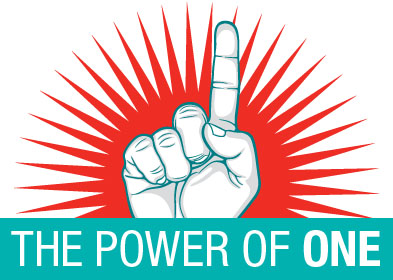
George Osborne, the UK Chancellor, was front page news yesterday, receiving positive plaudits from Action Aid and the ONE Campaign, as well as from other organisations also not known for being routinely generous with such public praise.
The story in question centres around how large corporations have skillfully dodged paying taxes to poorer countries in which they conduct business. Osborne used his attendance at a G20 meeting of finance ministers to make UK Govt commitments to a “new agenda of transparency” that will move towards stamping out skillful tax dodging by said corporations.
At the same time, he took the opportunity, quite rightly, to reinforce his government’s own pledge to increase to 0.7% (of GNI – gross national income) the funds it spends on international development programmes around the world.
The argument against increasing this UK “aid” budget has been made time and again since the Conservatives took office nearly 3 years ago, and no doubt Osborne’s piece in the Observer will not go down well with many. Whilst 0.7% is a small percentage compared to other government budgets, it still amounts to tens of millions of pounds of tax payers’ money. All other public sector budgets have been cut and, last year, the UK economy flat-lined, triple dipping back into recession.
If you were someone who had lost your public sector job in the UK in recent times, because of the government’s “austerity” measures, and then you read about how taxpayers’ money was being given to, say, the Indian government, to help create employment opportunities and improve healthcare facilities in India (a country with an active space programme, and whose companies are acquiring British firms) then you would, understandably, ask some questions.
Hopefully, in seeking answers you would be persuaded by the various supporters of the 0.7% pledge of the case for upping the investment in overseas aid.
As Osborne’s article yesterday underlines, much of the thinking behind how to best put UK aid money to task in the future, is more geared around supporting countries – including India – own capacities to govern more effectively.
Tax collection from multinationals falls into this thinking. As would the article’s mention of pushing harder for extractive companies (oil, gas, mining) to publish what they pay to host governments around the world, in order that civil society in these countries can advocate stronger for fairer redistribution of these valuable revenues.
Whatever your political persusion, and however much you find Osborne’s own background – and general demeanour – unpalatable, these are admirable sentiments to be making (yes, sentiments at the moment, rather than actions) and I hope that the profile they are given in the media as a result of Osborne’s efforts, goes some way to invoking people to join this particular debate.
A debate which, in the spirit of why this blog was conceived, needs not just “reinventing” but a whole new makeover and reincarnation, in terms of placing the wellbeing of so many of the world’s most vulnerable population groups, higher up the agenda of those less so.
Those opposing Osborne’s narrative on this are well entitled to question his motives, and speculate over what will actually come from this particular moment in time. However, make no mistake, the premise upon which he is putting forward these arguments – around supporting good governance overseas, and using the UK’s 0.7% pledge to also embarass other economically wealthier nations into addressing and financing the same – is sound, and deserves to be acknowledged as such.
The statistics – take your pick – so often used by NGOs and campaign groups, to heighten awareness about the inequalities and injustices in the world, have become white noise to so many readers and commentators, that they could easily also become meaningless. Osborne’s article cites the millions who will benefit from schooling and healthcare facilities as a result of UK efforts to increase international development funding, and his detractors will reciprocate by throwing back at him statistics of rising unemployment and poverty rates at home…
And so where does this debate find its ultimate closure?
For it to continue “circling” is no bad scenario, as it will require generations yet to actually realise an end to extreme poverty and suffering, and to a more balanced order of things.
In the meantime, however, I welcome any new means of re-introducing the discussion into the mainstream. If that means George Osborne and the Tories need to be the man and party to do it, whilst they are still in power, then bring it on. Keep it up there for all to think about, and where possible, reinvent the medium through which we actually do think about it.
We’ve listened to the statistics, and we’ve read the harrowing stories of those around the world who are effected by conflict, and by the underlying causes of poverty. For decades. Some positive outcomes have happened as a result, but arguably a huge chunk of the world remains cut off from really knowing, caring, and advocating to do anything about such things.
How can this be turned around? How can every person be made to feel empowered to do something, to feel, act, and commit to something that will have a positive impact on creating a more equal global society?
You tell me.
